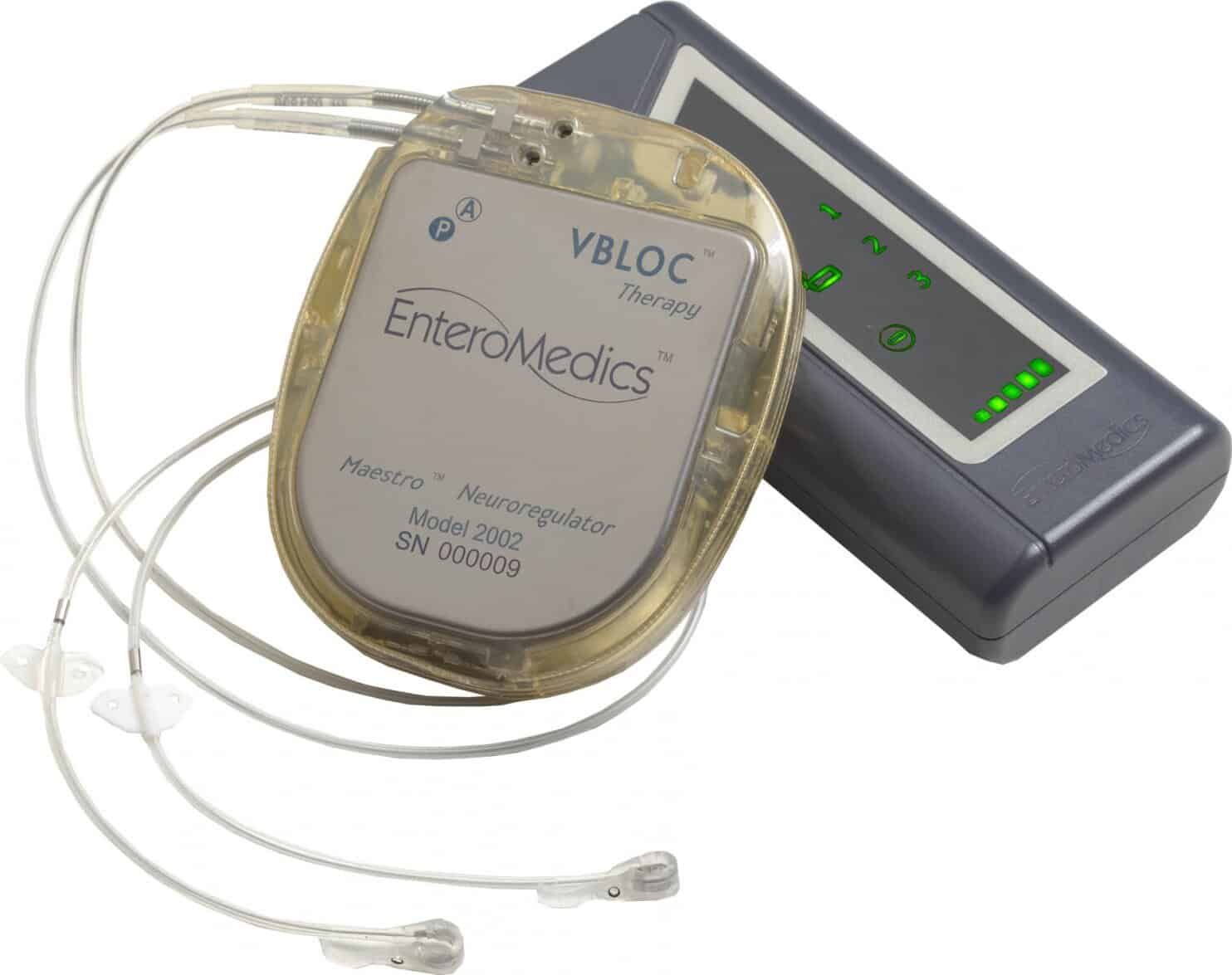EnteroMedics’ Maestro Neuroregulator electrical implant device looks like a promising replacement for gastric bypass surgery.
According to the American Obesity Treatment Association, bariatric (gastric bypass) surgery is recommended for obese persons with a body mass index (BMI) ranging from 35 to 40 with associated medical conditions and greater than 40 with or without other medical problems. The goal of bariatric surgery is intended to alter the size of the stomach and/or intestines so the patient will feel full faster; and, thereby eat less food.
Indeed, if you have a friend or family member who lost a dramatic 80 pounds or more, he or she may very well have underwent gastric bypass surgery of some sort. Post-surgery recovery and success required a great deal of willpower to restrict food consumption in order not to reverse the surgery and cause violent illness. Due to technological advance, these post-surgical risks may soon become worries of weight loss history.
A new device, known as the Maestro Neuroregulator, is composed of electrodes, wire leads and an electrical charge generator that are implanted into the abdomen. The generator administers VBLOC therapy or electrical stimulation to the nerves that tell the brain the stomach is full. With VBLOC therapy, a patient does not need will power not to eat. The desire to eat is literally zapped away.
The Food and Drug Administration approved it for adults over the age of 18 with a BMI from 35 to 45 and an obesity-related medical condition such as diabetes mellitus.
Doprah No Filtah is a clinical research professional and health enthusiast. She holds a Master of Science in Health Science from Touro University and a B.A. in Human Services from George Washington University. When she’s not ensuring the quality of over-the-counter supplements at the Food and Drug Administration, she is off listening to some dope underground hip hop. Follow her on Twitter @SNSNightlifeMag.
Good News for Dieters: A New Food Additive Makes Meals More Filling
Hood Health 101: The Source Recognizes National Diabetes Awareness Month
